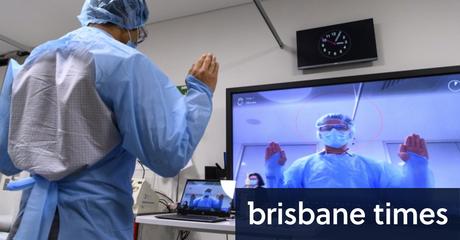
Former Secretary of the Federal Department of Health Jane Halton, who served on the advisory board of the National COVID-19 Commission, said the proper use of PPE was "absolutely fundamental" to safeguarding healthcare workers and limiting the spread of infection.
"Anything that can be done to help doctors, nurses and others who need to use PPE to make sure their PPE practice is absolutely the best it can be, it must be a good thing." , said Ms Halton.
Dr Michael Bonning, chairman of the board of the Australian Medical Association NSW, said the Omicron strain was found to be more infectious than previous variants and doctors need to be very vigilant about PPE procedures.
"Having a system in place that eliminates human error is a great solution and could reduce the number of healthcare workers released from exposure," he said.
The app is already in use at Macquarie University Hospital, where it is used to train medical students and nurses. But the team is eager to roll it out more widely and in discussion with three more hospitals, two educational groups and an elderly care facility. Although the application is currently calibrated for a medical or elderly care environment, Professor Wilson said there is potential for it to be applied in a range of industries that have used PPE, such as the preparation of food and shopping environments.
The app has been developed, tested and validated over the past 18 months at Macquarie University, with the 'steps' of PPE informed by guidelines developed by Johns Hopkins University in response to the Ebola pandemic and in accordance with the standards of the NSW Health Commission for Clinical Excellence. It also comes with privacy guarantees such as "cleaning" facial features and other user identification details before saving data.
Associate Professor Veronica Preda, who oversaw the app's trials with final-year student doctors Anand Jayapadman and Alexandra Zacharakis, said there were no standardized protocols for the PPE procedure in hospitals. , nursing homes for the elderly or the disabled, places often relying on a "buddy" system to check for errors. The reality in a busy hospital, she said, was that nurses often did not have time to fill this role.
"It's also about how much training they've had?" How confident are they? And is this the best use of their skills when we already have a tired and task-saturated workforce, "she said.

